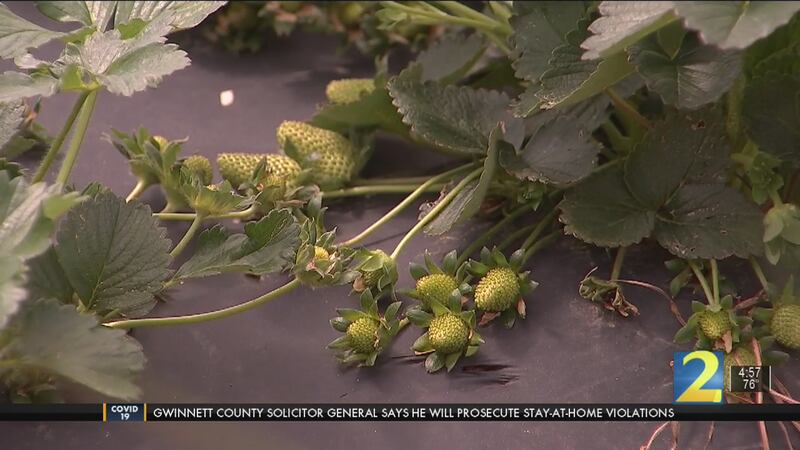ATLANTA — Many of you are growing your own food to save some money during this pandemic.
Severe Weather Team 2 Meteorologist Eboni Deon learned the recent colder temperatures might put a snag on the growth of your vegetable garden.
“As long as we don’t have frost, we’re pretty safe,” said Mike Chapman, Horticulturist for Pike Nursery.
Tax Day is usually a safe bet to plant our gardens, but this past Mother’s Day weekend brought cold temperatures and some frost to parts of north Georgia.
Chapman says most plants were not harmed by the colder temperatures.
“It has slowed things down; it’s slowed the growing process down a bit,” Chapman says.
Trees and shrubs with new growth are most susceptible to frost. Chapman says annuals, newly sprouted perennials, vegetables and herbs are the most sensitive.
“Typically, you’re going to see that new growth. It’s going to turn brown rather quickly, it’s going to shrivel and look really bad unlike the rest of the new growth,” Chapman says.
Chapman says the plant itself is not going to be damaged for the most part, it will come back. However, your annuals and vegetables, don’t bounce back as well and could be a loss.
Pruning tips may help to salvage some plants.
Adding mulch is also beneficial to keeping the moisture in, insulating the soil and maintaining root temperature.
For plants that seem sluggish and are not growing as they should, Chapman has some tips.
“You might want to put a little bit of a fertilizer on there. Something to get the roots established,” Chapman says.
There’s still plenty of time for your garden to bloom and look its best.
“As things warm up, the plants are going to take off and do what they do. They’re just waiting for the sun to come out and stay out,” Chapman says.
Deon says most annuals, trees and shrubs are going to do well as we head towards the warmer months.
The key is to plant in the best location for your plant. Some require full sun, while other do well in shade.
© 2020 Cox Media Group





